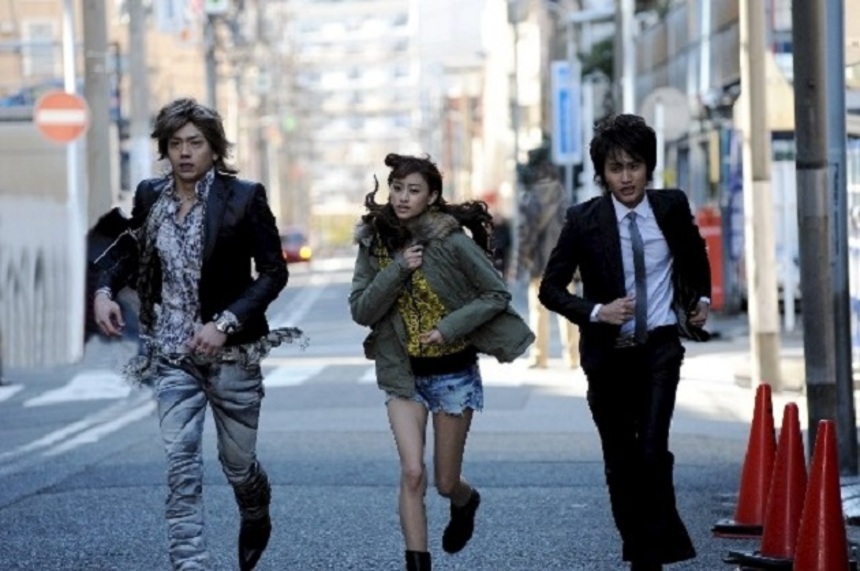Japan Film Festival 2014 Review: TOKYO REFUGEES Clumsily Critiques Contemporary Japan

Based on the many seedy and sad things you may have heard about Tokyo, the film aims to encapsulate the despair of existing outside the grid, as well as exposing the criminal and heartless world beneath the techno-glitter and polite conventions. Although the film is clumsy in its representation of the extreme bad that can befall anyone, it is still a powerful reminder that these events happen every day.
Slacker student Osamu's estranged father suddenly flees from debt, leaving him expelled from University and evicted from his apartment. Not really knowing what to do with his limited cash flow, he quickly squanders it, spiraling him into depression and desperation as he becomes part of the very real phenomenon that is 'net café refugees'. Day after day he pays pennies for a small room where he lives in front of a computer, asleep on a cramped chair and living off convenience store discounted foodstuff.
His luck turns momentarily before events force him into even more dire straits and he reluctantly becomes hostage to the Yakuza as an 'employee' at a host club, where he must serve and manipulate lonely women, driving their debt up so they cannot repay it and become sex slaves. Osamu makes some decisions that not only endanger his life, but truly reveal the extent of how vastly different Tokyo can be.
If this sounds extreme, it is. Osamu's journey is one filled with peril and bad luck, to an unreasonable degree. Worse still his attitude is that of neglect and disdain as opposed to outright fear or anger. He is a survivor, but by pathetically scraping by and living in desperation, it is hard to watch him.
The film drags by, focusing on his many moronic mistakes, and a pattern of cause and effect starts to become obvious. When Osamu befriends a host at the club and later falls in love, it is easy to see the destructive path these relationships will follow. Furthermore, the Yakuza retainer who runs the club is unfortunately a sneering sniveling caricature; a man who is unreasonably evil. It can be argued that the Yakuza are like this, but his portrayal basically ruins the social realism the film has adhered to until this point.
Other bizarre moments in the film work to quickly critique elements of society but do not really fit into the story. These moments include Osamu's chance encounter with a homeless man who wants to build a bomb and destroy Tokyo, and a particularly aggressive police invasion of privacy for practically no explained reason. The film is also needlessly long, and the final moments that explore other elements of workers' rights, unionism and moral and ethical dilemmas belong in another film entirely.
Tokyo Refugees succeeds in a sense, in that I genuinely felt angry watching it. The unfair and immoral things that happen to everyday citizens cannot really be explained and certainly not justified. It is a shame, then, that the film takes it too far as its incredibly exhaustive approach dilutes its vital, urgent message.
Tokyo Refugees
Director(s)
- Kiyoshi Sasabe
Writer(s)
- Tetsuzô Fukuzawa (based on the novel by)
- Takeshi Aoshima (screenplay)
Cast
- Shô Aoyagi
- Jun Inoue
- Nobuaki Kaneko
- Aoi Nakamura

Do you feel this content is inappropriate or infringes upon your rights? Click here to report it, or see our DMCA policy.






